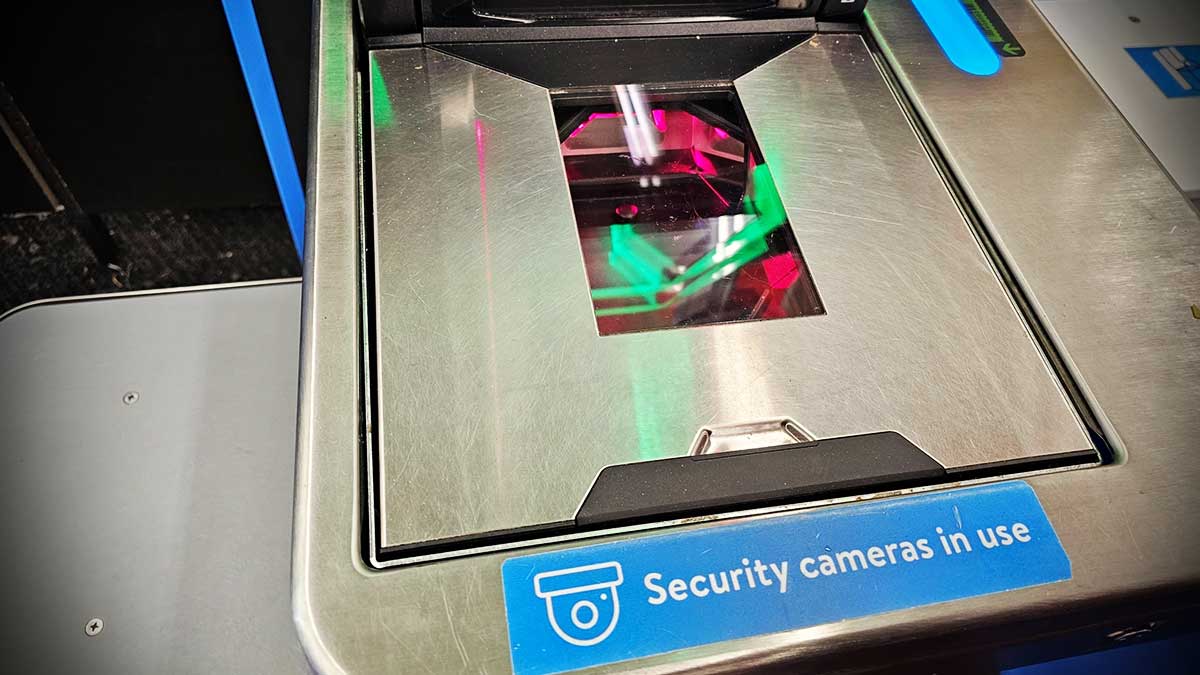Back in the eighties, the American singer Kennedy William Gordy, known by the stage name Rockwell, became a one-hit wonder. The song that propelled Rockwell briefly into the limelight was Somebody’s Watching Me. The title pretty much betrays the topic – a fear of surveillance.
Rockwell’s song was very appropriately released in 1984, the year which gave the title to George Orwell’s seminal novel. It was in 1984 that Orwell introduced the concept of Big Brother watching us.
Supermarkets and surveillance – how did we get here?
This concept is not entirely new. Even when Rockwell’s song was on high rotation – maybe even in supermarkets – retailers were keen to minimise theft. Store detectives certainly existed at the time, and many would have used video surveillance as part of their toolkit. Privacy laws weren’t exactly a big thing back in 1984.
Fast forward to 2023 – and what has changed?
For a start, the way customers might steal an item, or items, from a supermarket has evolved. This is in line with the way the checkout process has evolved – or some might say, ‘devolved’.
The major change is, of course, the introduction of self-service registers.
In the eighties, most shoplifters stole from supermarkets by secreting an item in a pocket, a pram, or under a coat. If the store detective spotted them – in person or via video surveillance – they’d act quickly to detain the offender.
The advent of self-service technology offers another opportunity to would-be thieves. Self-service checkouts rely on you to scan each item.
These new checkout systems are designed to make it difficult for a customer to ‘accidentally forget’ to scan an item. But a shopper who is determined to deliberately ‘accidentally forget’ can do so.
In response, newly introduced technology tracks customers passing through the checkout area, identifying those who don’t pay.
Separately, Woolworths has introduced AI technology which can identify different fruits. A customer who decides to enter a cheaper fruit than the one they’re actually buying will likely now be caught.
What about privacy?
According to Woolworths, faces captured in the surveillance are blurred and any captured data is deleted after purchase completion.
Major retailers claim the new measures are a necessary response to a recent spike in thefts, which is being partly blamed in part on customers struggling to cope with the cost of living.
One way or another, retailers are watching you when you make a purchase. Supermarkets are investing heavily in high-tech surveillance. It makes sense, but one can’t help but wonder if a human providing checkout service might achieve the same thing. They might even be able to do so at a similar cost, while providing a smile and having a chat.
Are you aware of the lengths to which supermarkets are going to prevent theft? How do you feel about being watched? Let us know in the comments section below.
Also read: Favourite supermarket bread named


As the article pointed out people have always stolen from supermarkets. Although it is only the minority of shoppers who steal we all pay the price. Stealing happens whether there is surveillance or not and whatever preventions are put in place, there are those who will always try and outwit it. In my local supermarket meat now comes with an electronic bar code that is only deactivated when it is scanned at the checkout – another sign of the times.
The focus here is on supermarkets but every other retailer has the same issues.
Frankly, I don’t much care why people are stealing. It is wrong – pure and simple. We are all paying for the theft which just pushes prices up even more.
Theft is costing us all financially so it should come as no surprise that it affects everyone’s privacy too. I would much prefer that surveillance wasn’t necessary but then I’d much prefer we didn’t have thieving dishonest people in our community too. I don’t accept that shoplifting is all due to the economic situation, if that was the case only shops selling essentials would be targeted but that’s not the case. Talk to businesses selling sports clothes, fashion accessories, electronics and car accessories amongst others. Like too much else, it’s become a sport.
Identify them, report them, charge them name and shame them, and if they’re repeat offenders lock them up.
The sad fact is that 98% of people are honest. The 2% that have this kleptomaniac affliction usually have dis-functional lives and karma will step in and ensure they eventually pay for their misdemeanors anyway. It’s terribly philosophical I know, but I say just live and let live.